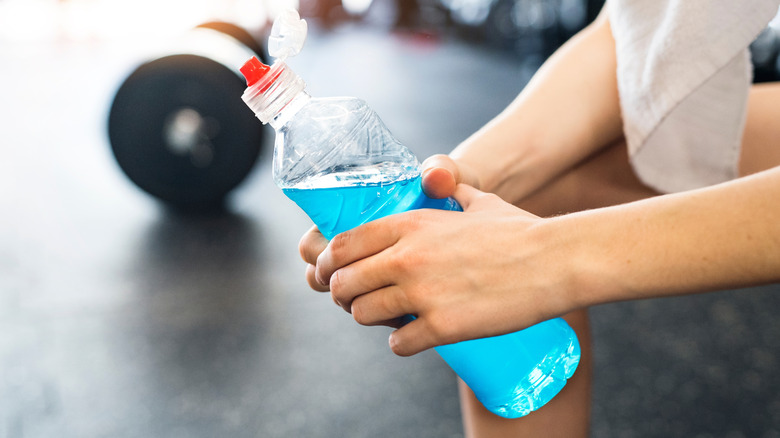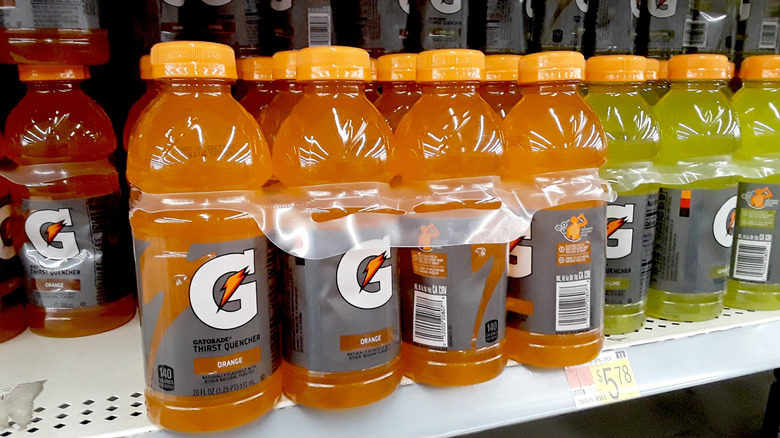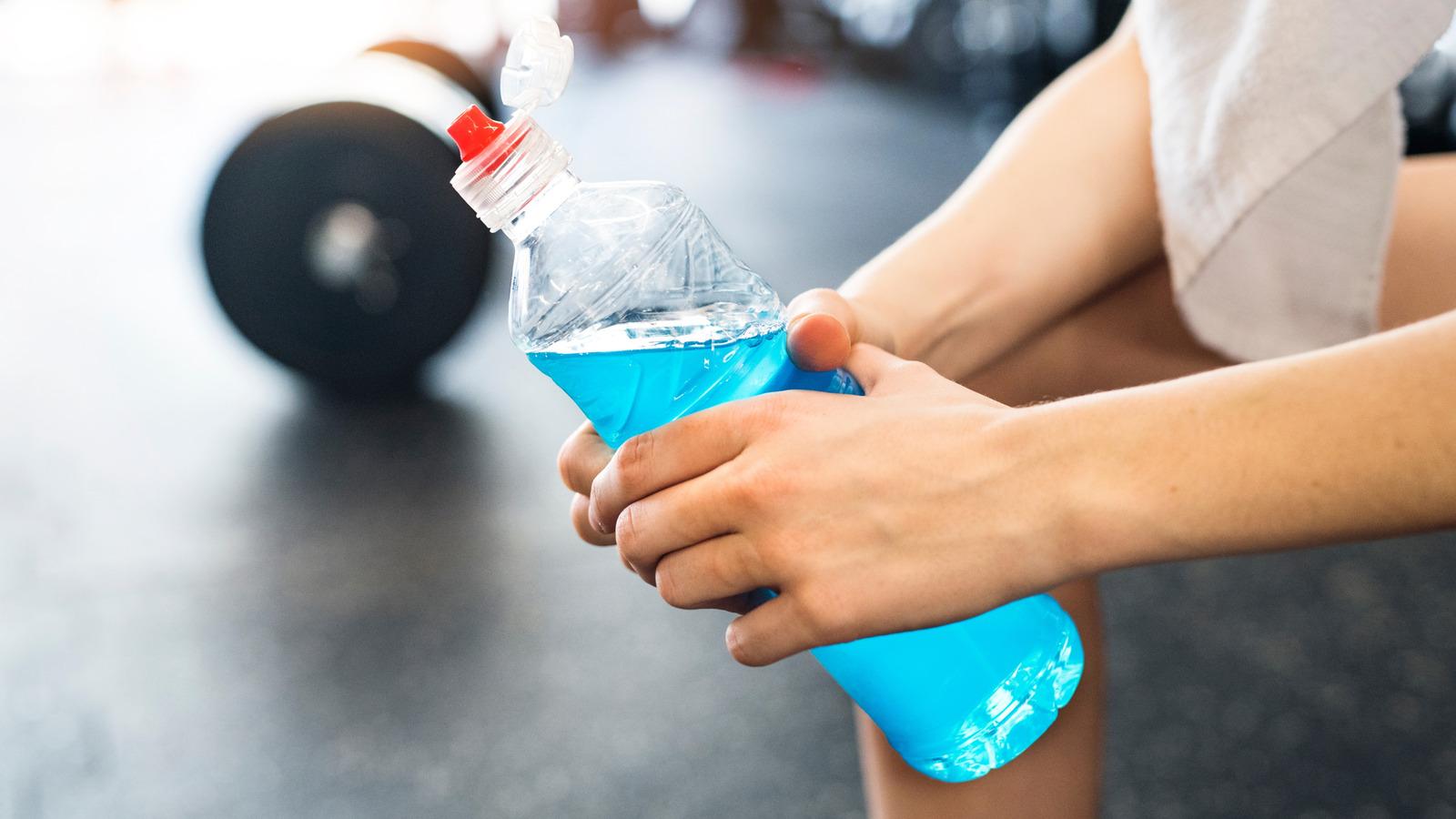
Halfpoint/Shutterstock
European nations have drastically different food laws than the U.S. and some American foods are banned in other countries, sparking a debate over how safe some of our favorite fare really is. Gatorade, the best-selling sports drink in America, hasn't exactly been favored by European regulation, and as a result, is difficult (or downright impossible) to find on many overseas shelves due to health concerns.
The first blow to Gatorade's standing in Europe came when the beverage was removed from shelves for containing brominated vegetable oil (BVO) as a stabilizer. BVO is vegetable oil altered with bromine. It was initially banned in the United Kingdom in the 1970s and banned by the European Union in 2008. Gatorade swapped BVO for sucrose acetate isobutyrate in 2013, and 11 years later, the U.S. finally caught up, prohibiting the ingredient after studies revealed it was associated with increased bromine levels in the body, leading to health issues, including neurological risks and negative effects on the thyroid .
Still, the sports drink isn't off the hook. The artificial dyes that give Gatorade its vibrant hues are heavily regulated outside the U.S. Foods containing Yellow 5 or 6 must carry a warning label in EU countries, and due to differing laws in specific nations, Gatorade is virtually impossible to find within certain borders.
Can you find Gatorade anywhere in Europe?

Collins Unlimited/Shutterstock
You won't find Gatorade in Norway, which banned all synthetic dyes in 1978 .This was due to a significant association between artificial food dyes and hyperactivity in children — a correlation backed by multiple studies. Norway loosened its approach in 2001 to align with EU laws, but Yellow 5 (otherwise known as tartrazine) is still totally banned. Austria and Finland have also banned the ingredient, and while the U.K. famously departed from the EU in 2020, it still has strict regulations for synthetic dyes, and products with Yellow 5 and 6 are branded with warning labels.
Some countries may allow naturally-dyed versions of Gatorade or versions that skip the dye altogether. However, due to this history of restriction, and the popularity of other hydrating sports drinks, the beloved brand may never reach the level of popularity it has attained in America. Even in the U.S., the long ingredient list and excessive sugar in Gatorade has driven many to seek alternatives, including simple sports drinks you can make at home.



